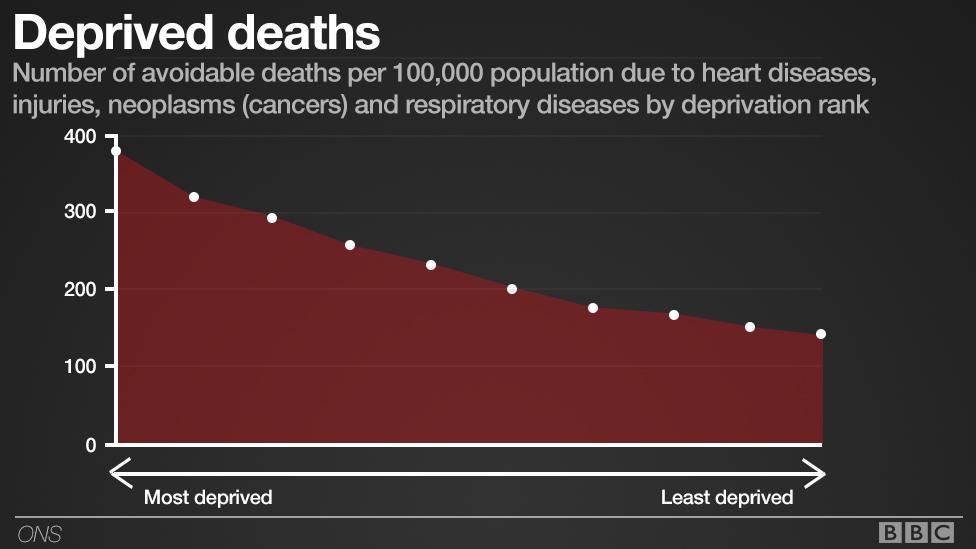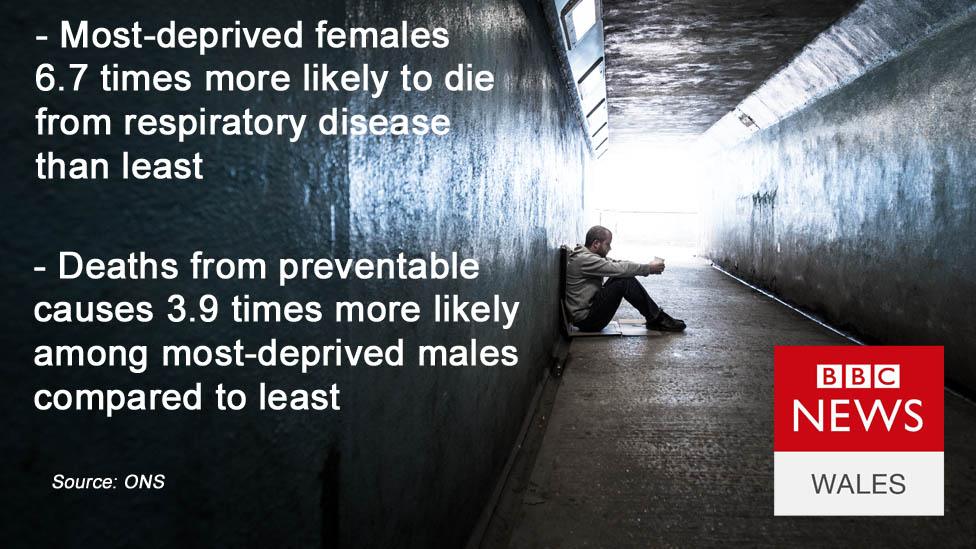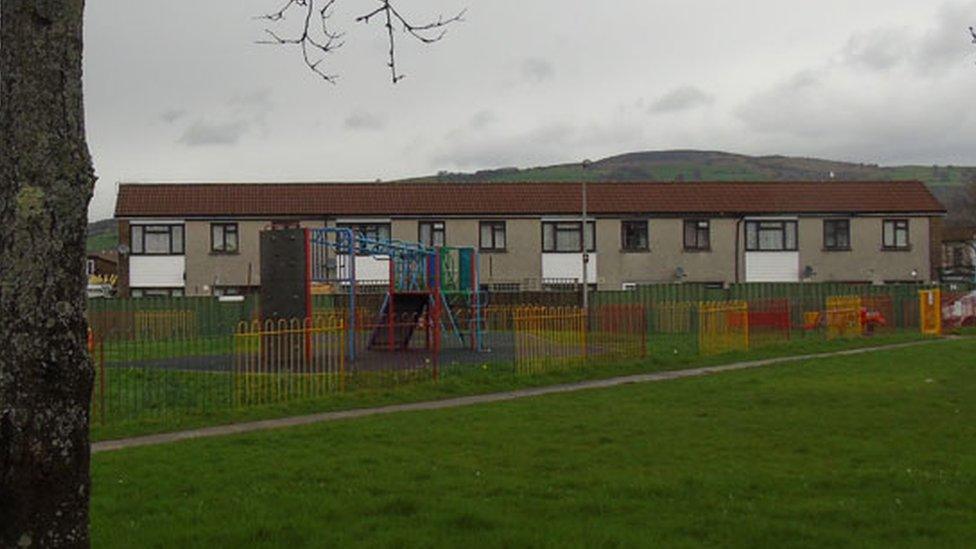Avoidable deaths twice as likely in poorest areas
- Published

Avoidable deaths are two to three times more likely in the poorest parts of Wales compared to the richest, a new report has said.
An Office for National Statistics (ONS) study, external found twice as many deaths from preventable causes in the most-deprived areas compared to the least in 2015.
The Welsh Government said it was taking action on "all fronts" to tackle deprivation.
But poverty charities said more needed to be done.
The ONS looked at so-called "avoidable deaths" in Wales and England in 2015 - those which could have been prevented by "timely and effective healthcare" or "public health interventions".
The rates of avoidable deaths in Wales and England were not comparable as different measures of area-level deprivation are used.
However, according to the study, men living in the poorest areas of Wales had higher preventable mortality rates than women - with about 544 avoidable deaths per 100,000 compared with about 334 per 100,000.

In the most deprived areas, men were more than three times more likely to suffer an avoidable death compared to those in the least deprived, while the figure for women was 2.4 times more likely.
In Wales, there were 1,054 deaths from preventable causes in the nation's most deprived areas - compared with 509 deaths in the least deprived.
The study said factors for ill-health included people's lifestyles as well as "inequities in the availability and quality of care".
ONS statistician Dr Annie Campbell, who compiled the figures, said the link between avoidable mortality and deprivation was strongest for avoidable respiratory diseases.
She said: "The most-deprived populations in England and Wales are up to 7.7 times more likely to die from an avoidable respiratory disease than the least deprived. Smoking is the most likely contributory factor to these differences.
"However, it is in the cases of cardiovascular disease and cancer where the inequalities in mortality seen between more and less deprived areas can be most reduced overall. Narrowing the gaps in mortality for these diseases will have benefits for the largest number of people."

Oxfam Cymru described the figures as a "harsh reminder" work was needed to tackle poverty.
Campaign manager Ben Lloyd said: "Over the past few years, poverty reduction has focused on what people do not have - whether it is skills, employment or stability in their life.
"Oxfam Cymru believe it is now time to focus on a more sustainable path out of poverty; one which focuses on building on the strengths and assets people do have."
That was echoed by The Bevan Foundation, which called the avoidable mortality rates a "tragedy".
Director Victoria Winckler said: "The link between ill-health, mortality and low income is complicated, but the root cause is poverty and inequality.
"There needs to be a concerted effort by the Welsh Government, local authorities and businesses alike to eradicate low income and deprivation."

The Welsh Government said health outcomes depended strongly on socio-economic conditions, lifestyle factors, environmental factors, as well as access to healthcare.
A spokeswoman said: "We continue to take action on all these fronts, with recent examples including the passing of the Public Health (Wales) Act and the recently published high-level plan of priority actions for the South Wales Valleys; Our Valleys, Our Future.
"Our ongoing efforts to tackle major issues such as smoking, where prevalence levels are in line with our target of achieving 16% by 2020, will have a positive impact long into the future."
- Published13 April 2017

- Published14 March 2016

- Published26 November 2014
